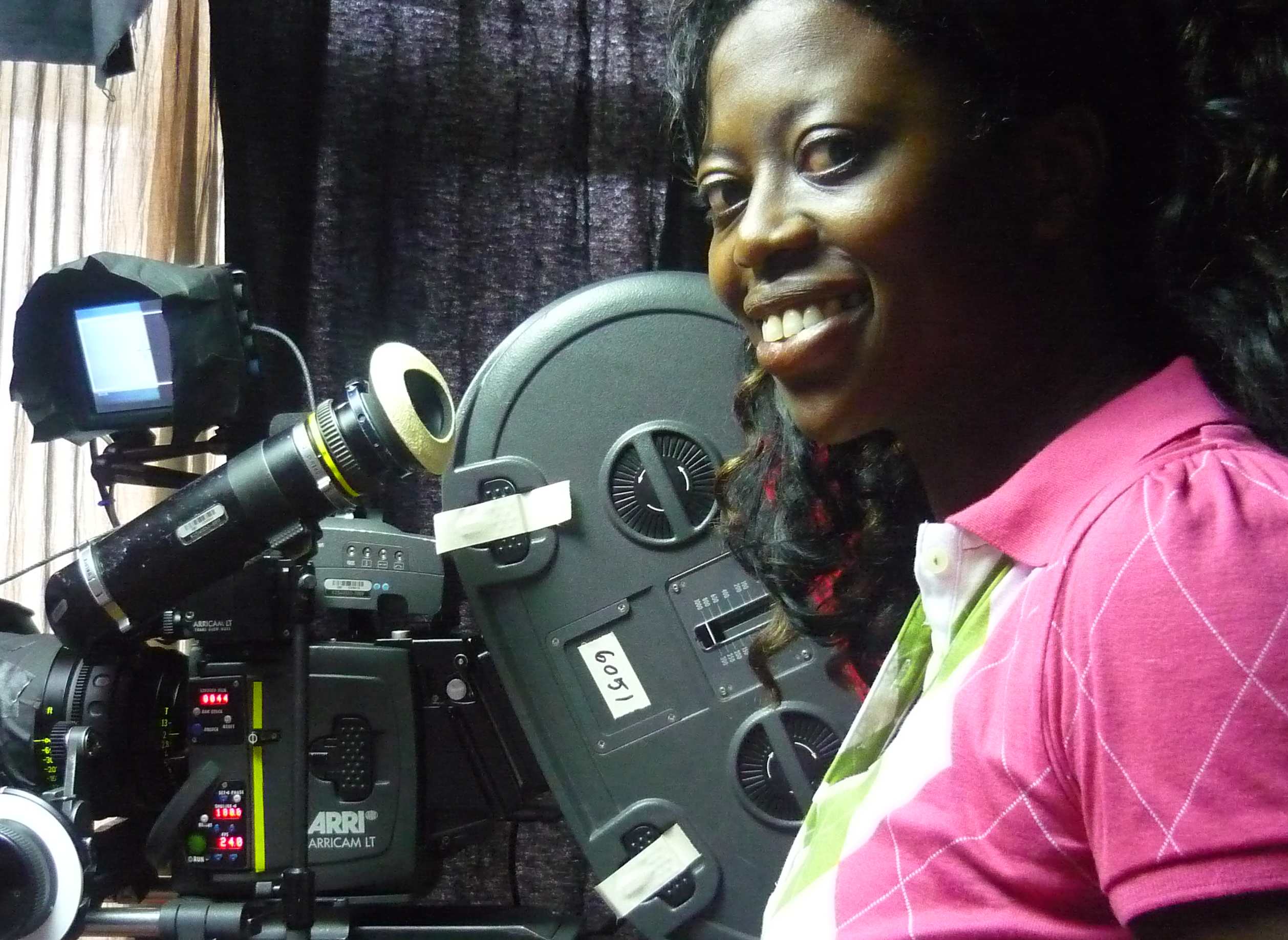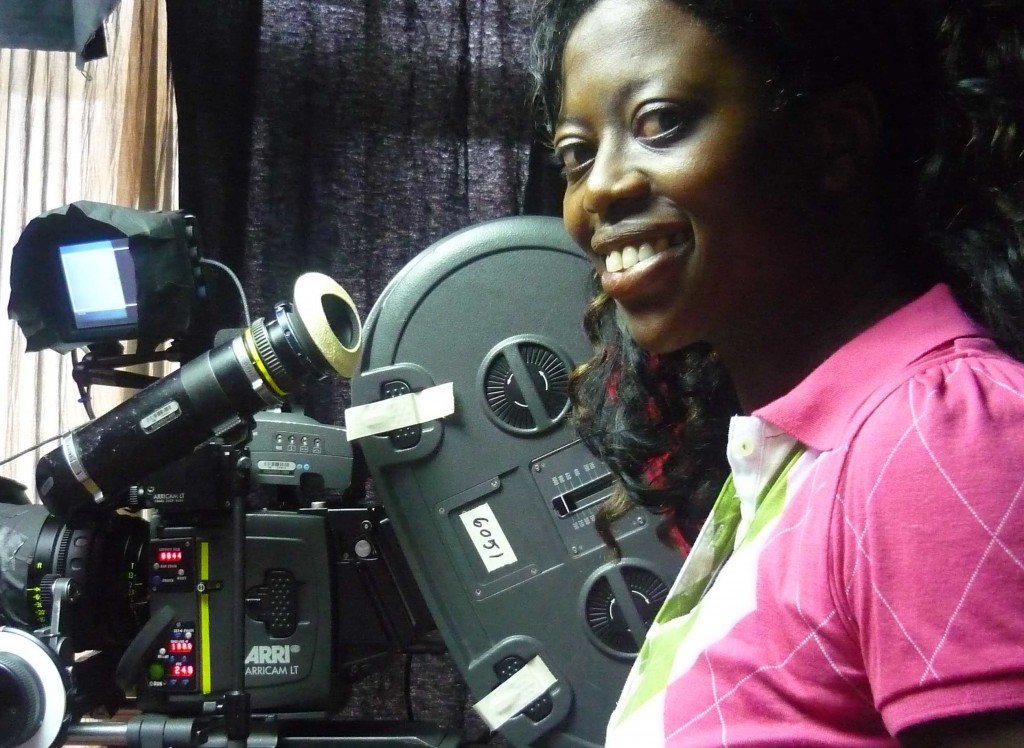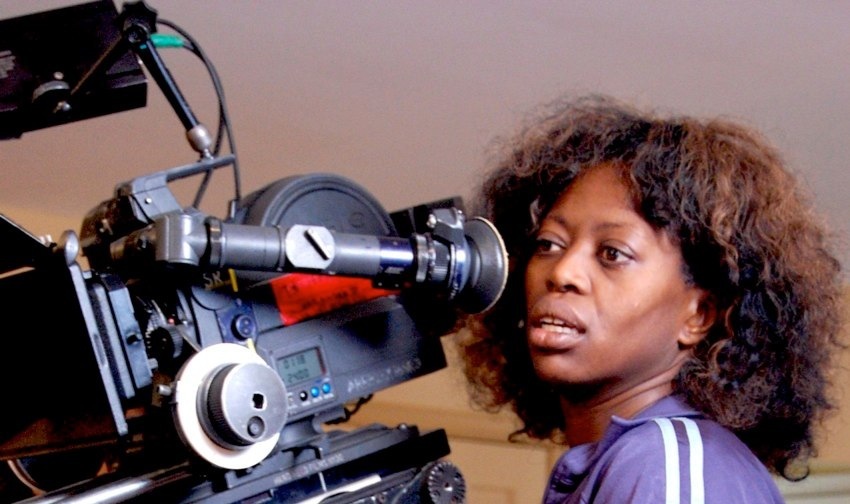
Welcome to the Weekend POU!
The final Cinematographer featured in our series is the first and only African American woman to obtain a MFA in Cinematography from New York University.
Cybel Martin
Perhaps because she was named after 1962 Oscar winning film, “Sundays and Cybele”, this native New Yorker has set her sights on her own golden statue. She served as the Cinematographer for “Orange Bow” which premiered at the Tribeca Film Festival, for “Sangam” which was recognized for its deeply moody and textured palette and premiered at the Sundance Film Festival. Her feature work has included “Flora’s Garment Bursting into Bloom”, winner of the Showtime “No Limits” Award at the New Festival, addtl photography for the Slamdance Grand Jury Winner “On The Outs,” the criminal dramas “Dregs of Society” and “No Problem.”
She has also been fortunate to team up with notable performance artists, most recently shooting “Forget Me Not” for artist Zach Fabri, commissioned by the Studio Museum of Harlem. She received considerable recognition for her work on “The Gilded Six Bits”. This 1920′s period piece set in the rural south and based on a Zora Neale Hurston story, won the Hollywood Black Film Festival Jury Award and special screenings at The Library of Congress, The Smithsonian and Museum of Natural History. The film featured Wendell Pierce (“The Wire”, “Treme”) and Chad Coleman (“The Walking Dead”).
Cybel has contributed to numerous documentaries, notably Lucy Walker’s “The Crash Reel”, “Inside: The New Black Panther Party” for National Geographic, ”11 Days” dir by Dan Metcalf and prod by Mark Burnett and the Tribeca Film Festival “All Access Award” winner, “Dressed Like Kings”. Her commercial clients include L’Oreal, Hewlett Packard, Timberland, Calvin Klein, Nike, Sony Music and PBS.
Most recently, Cybel is one of five women DPs to be selected as recipients of the first Digital Bolex Grant for Women Cinematographers.
Per Digital Bolex, Women cinematographers are one of the most underrepresented groups of technicians working in the film industry today, with a 2% employment rate, when considering the top 250 grossing films of 2013; compare that figure to 6% for directors – both certainly dismal!
And, in brief, the Digital Bolex Grant for Women Cinematographers is an initiative to help foster a film industry environment that’s inclusive of and embraces the contributions of women cinematographers. The grant offers approximately $10,000 worth of gear and accessories loaned on a rolling basis, to any narrative short, music video, or feature film project, that will be shot by a woman cinematographer.
A selection of clips from features and docs, shot in every format:


